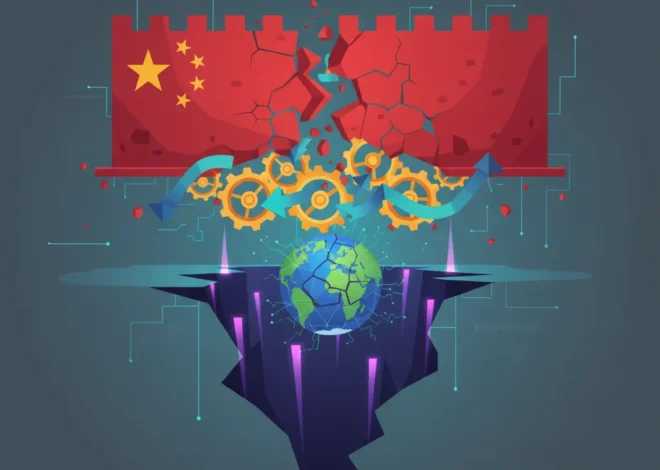
The Prosecutor on Trial: Why a Shocking Italian Verdict Puts Global Investors on High Alert
In the intricate world of global finance, risk is a constant companion. Investors and analysts meticulously model for market volatility, interest rate fluctuations, and economic downturns. Yet, some of the most potent risks don’t appear in neat columns on a spreadsheet. They simmer in courtrooms, echo in political chambers, and threaten the very institutional bedrock upon which stable markets are built. A recent, deeply troubling verdict from Italy serves as a stark reminder of this reality, sending a chilling signal that should resonate with anyone involved in international investing, banking, and finance.
The case revolves around a titan of Italy’s anti-corruption movement, Piercamillo Davigo. A former magistrate and a key figure in the historic “Mani Pulite” (Clean Hands) investigations of the 1990s, Davigo has built a career on holding power to account. Yet, in a stunning reversal of roles, he now finds himself on the other side of the law. Davigo, the former head of Milan’s anti-corruption prosecution unit, was handed a conviction and a 15-month suspended sentence. His crime? Revealing secret documents to members of Italy’s judicial governing body. As reported by the Financial Times, this conviction is now under appeal, but the damage to the perception of Italy’s commitment to fighting graft may already be done.
This isn’t merely a local legal drama. The conviction is inextricably linked to one of the largest corporate corruption scandals in recent history: the case against energy giants Eni and Shell over the acquisition of the OPL 245 oilfield in Nigeria. While the companies and their executives were ultimately acquitted of paying bribes, the case against the very prosecutor who symbolized the fight against such high-level corruption raises profound questions. For investors, business leaders, and economists, the implications are far-reaching, touching everything from ESG metrics to the fundamental stability of a G7 economy.
The Ripple Effect: From a Milan Courtroom to the Global Stock Market
To understand the gravity of the situation, one must look beyond the immediate verdict. This case strikes at the heart of institutional integrity and the rule of law—two pillars essential for a predictable and trustworthy investment environment. When the public and international partners lose faith in a country’s ability to police itself, the economic consequences can be severe.
1. The Erosion of Governance and ESG Investing
In today’s financial landscape, Environmental, Social, and Governance (ESG) criteria are no longer a niche consideration; they are a core component of risk management and long-term investing strategy. The “G” for Governance is arguably the most critical pillar. It represents the systems of rules, practices, and processes by which a company—or a country—is directed and controlled. The prosecution and conviction of a top anti-graft figure is a monumental red flag for governance.
International investors and asset managers, who pour billions into European markets, rely on the assurance that legal and regulatory frameworks are robust and impartial. This verdict, however, suggests that the very individuals tasked with enforcing anti-corruption laws can themselves become targets. NGOs like The Good Lobby and ReCommon have voiced alarm, stating that such a ruling could create a “chilling effect,” discouraging prosecutors from pursuing powerful corporate and political figures. For an ESG analyst, this translates directly into higher political risk, potentially leading to a downgrade of Italy’s governance score and making its assets—from government bonds to equities on the stock market—less attractive.
2. Re-evaluating Political Risk in a Major Economy
A stable, independent judiciary is the bedrock of a modern economy. It ensures contracts are enforceable, property rights are protected, and that no entity is above the law. The Davigo case introduces a worrying element of uncertainty. It fuels a narrative that the legal system could be used for political ends, a characteristic more commonly associated with emerging markets, not a founding member of the European Union. This perception can have tangible effects on the broader economy:
- Credit Ratings: Sovereign credit rating agencies watch institutional strength closely. A perceived weakening of the rule of law can contribute to a credit downgrade, increasing the Italian government’s borrowing costs and having a knock-on effect on the entire banking sector.
- Foreign Direct Investment (FDI): International corporations planning to invest in Italy will take note. The fear that they could be caught in a politicized legal battle or that anti-corruption enforcement is weakening could cause them to divert capital to more predictable jurisdictions.
- Market Volatility: The stock market abhors uncertainty. News that undermines faith in a country’s core institutions can trigger sell-offs in its financial markets, impacting trading volumes and investor confidence.
A Nation’s Long Struggle with Corruption
To fully appreciate the current situation, it’s essential to view it through the lens of Italy’s history. Piercamillo Davigo was a junior magistrate in the “Mani Pulite” pool of prosecutors in the 1990s, an unprecedented nationwide investigation that exposed systemic corruption and effectively dismantled Italy’s post-war political establishment. That period was seen as a watershed moment, a promise of a new, cleaner era for the country’s economy and politics.
However, the fight has been a long and arduous one. While progress has been made, Italy has consistently lagged behind its G7 peers in corruption perception. The following table, using data from Transparency International’s 2023 Corruption Perception Index, illustrates this gap.
| Country | CPI Score (out of 100) | Global Rank (out of 180) |
|---|---|---|
| Canada | 76 | 12 |
| Germany | 79 | 9 |
| Japan | 73 | 16 |
| United Kingdom | 71 | 20 |
| Italy | 56 | 42 |
| United States | 69 | 24 |
As the data shows, Italy’s score of 56 places it significantly behind its peers, indicating a higher perceived level of public sector corruption. This long-standing issue makes the recent conviction of a leading anti-graft figure all the more alarming. It threatens to reverse hard-won gains and further entrench the perception of systemic risk, a factor that directly influences international economics and investment flows.
Can Financial Technology Offer a Path Forward?
While the outlook may seem bleak, recurring scandals of this nature are a powerful catalyst for innovation. The inherent weaknesses in traditional systems of oversight and accountability are precisely what the world of financial technology (fintech) aims to address. The opaqueness of the OPL 245 deal, for example, highlights a need for greater transparency that technology could help provide.
Consider the potential of blockchain technology. A distributed, immutable ledger could be used to create a transparent and tamper-proof record of government contracts, licensing agreements, and large-scale corporate transactions. If a multi-billion dollar oil license payment were recorded on a public or permissioned blockchain, it would be exponentially more difficult to conceal illicit payments or backroom deals. While not a panacea, blockchain represents a powerful tool in the fight for transparency in public and corporate finance.
Furthermore, the field of Regulatory Technology (RegTech), a key area of fintech, is developing sophisticated AI-powered tools to help banks and corporations monitor for corruption and money laundering risks in real-time. These systems can analyze vast datasets to flag suspicious transactions and complex ownership structures, providing a layer of automated oversight that is less susceptible to human influence or intimidation. The demand for such financial technology will only grow as events like the Davigo case remind the investing world of the persistent dangers of corruption.
A Crossroads for Italy and International Investors
The conviction of Piercamillo Davigo is more than a legal footnote; it is a critical juncture. It is a test of the resilience of Italy’s democratic institutions and a moment of reckoning for the international community that invests in its economy. The outcome of his appeal will be watched closely, but the signal has already been sent.
For finance professionals and business leaders, the key takeaway is the reaffirmation that non-financial risks, particularly those related to governance and the rule of law, are paramount. They can no longer be siloed as a concern for the legal department; they are a core issue of finance, economics, and long-term strategy. This case serves as a powerful reminder that in the global economy, the integrity of a nation’s institutions is one of its most valuable assets—and its erosion, one of the greatest threats to a stable financial future.


